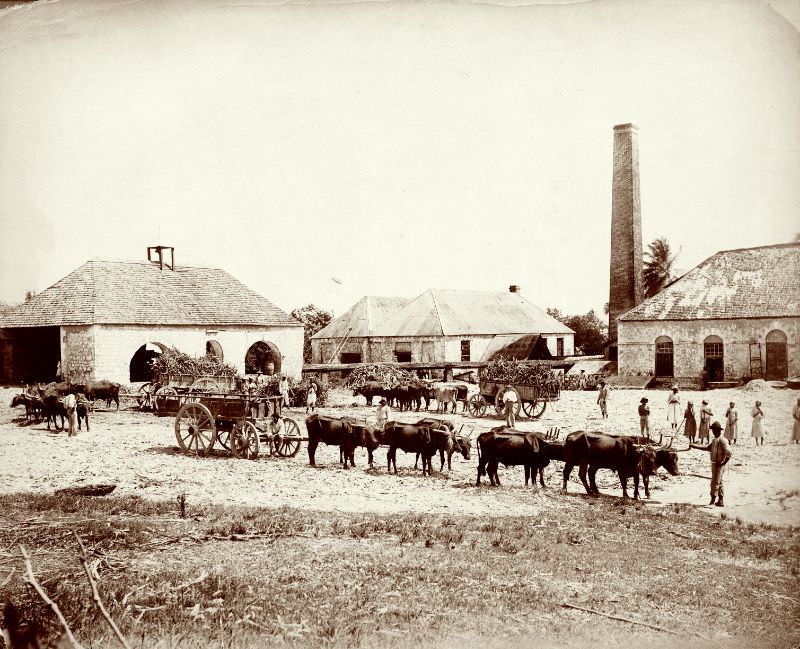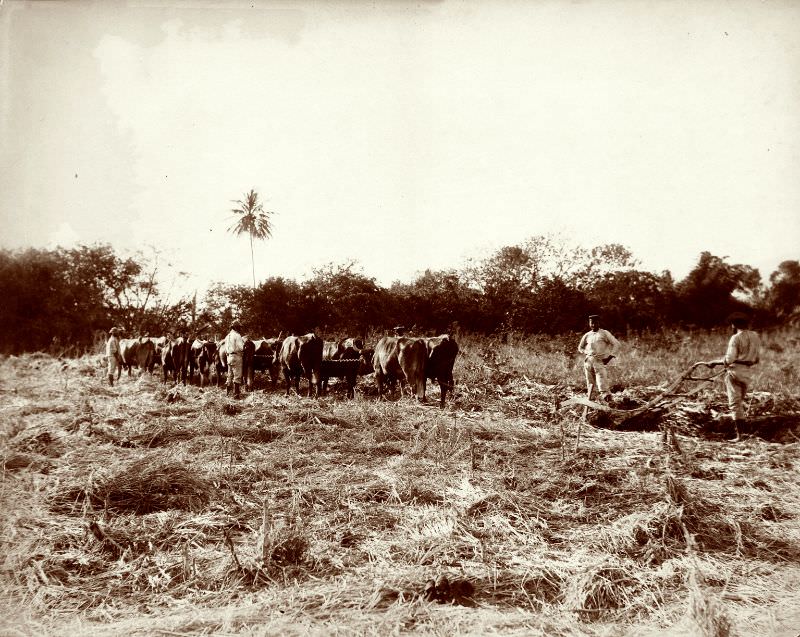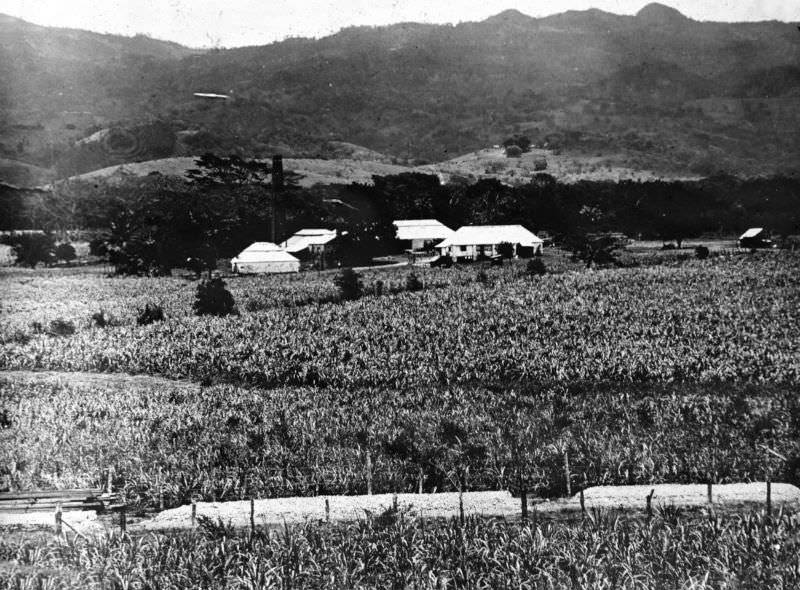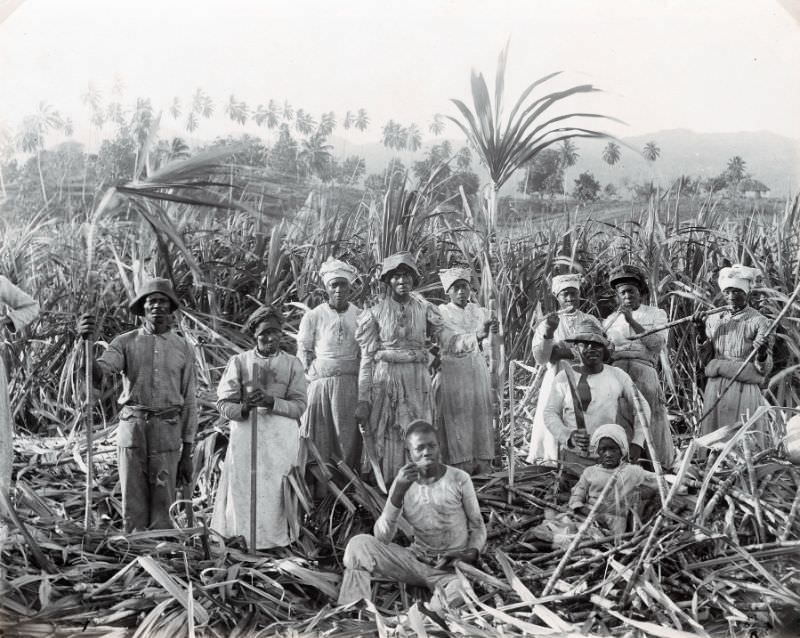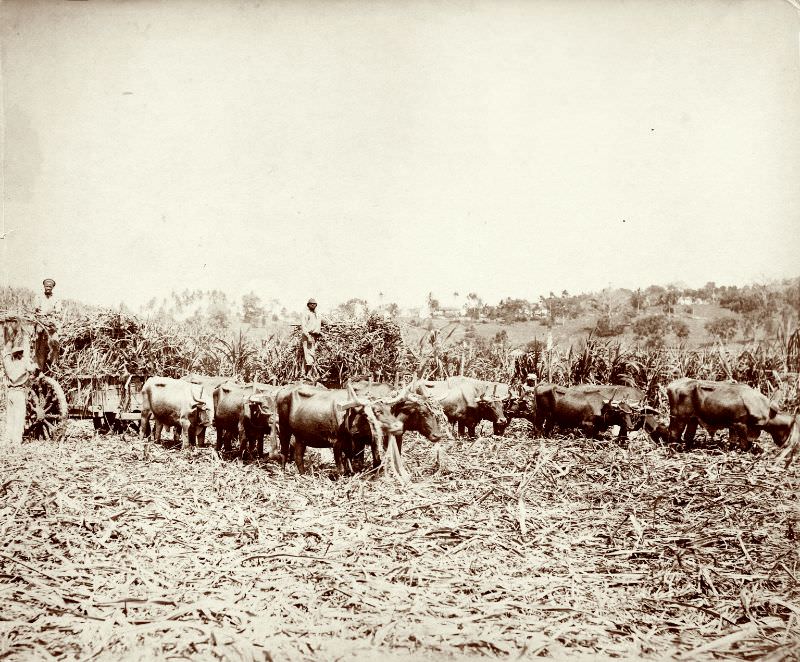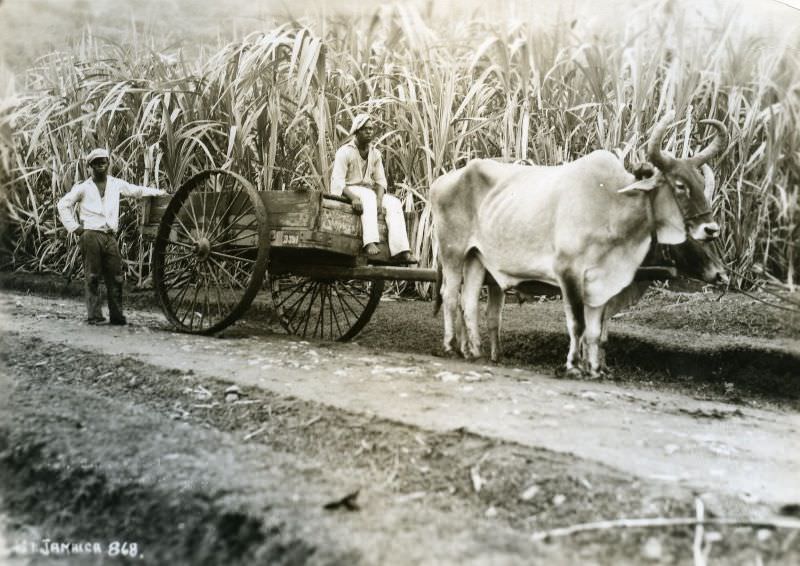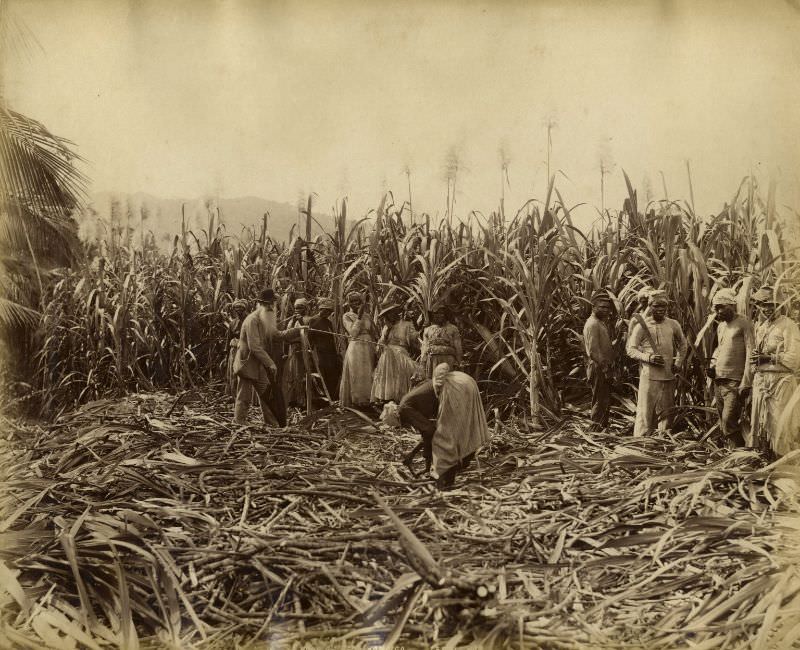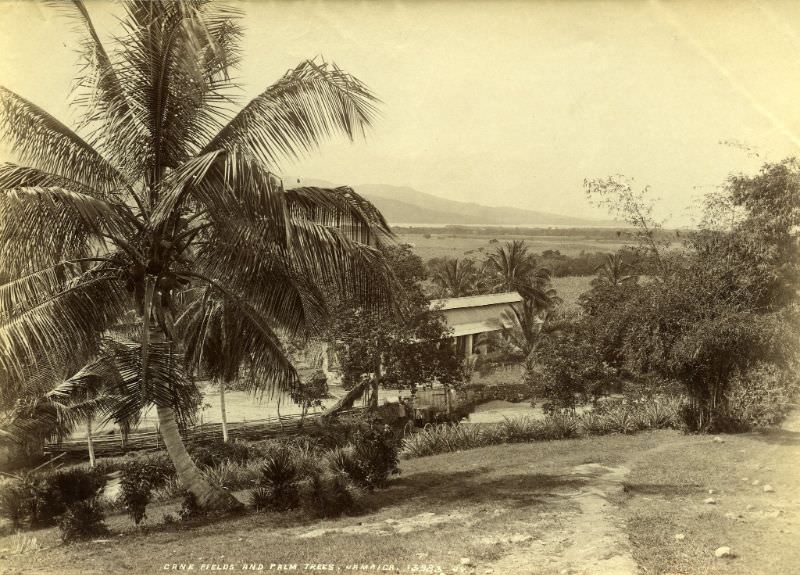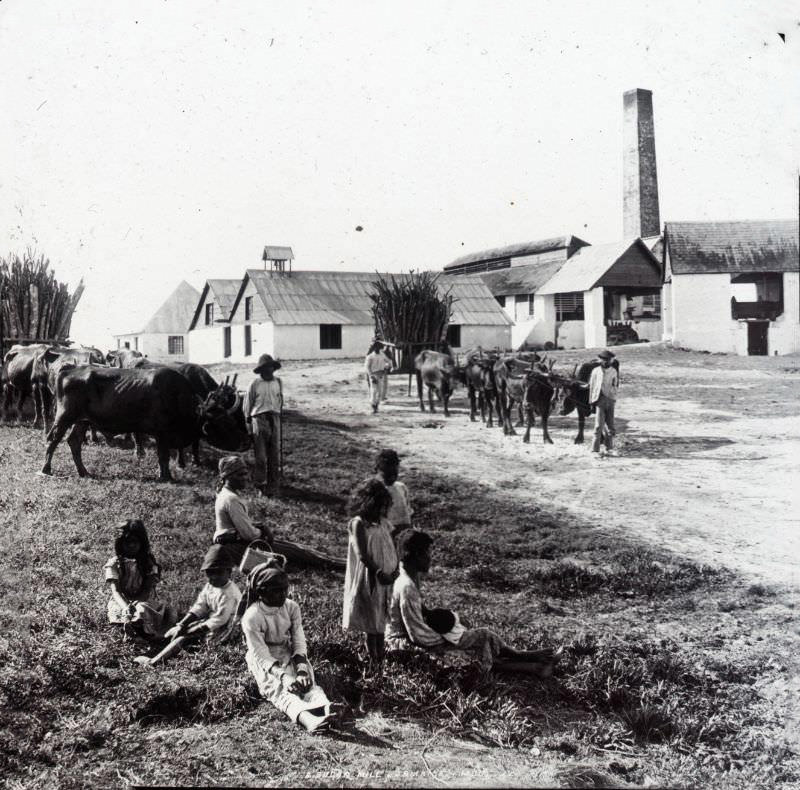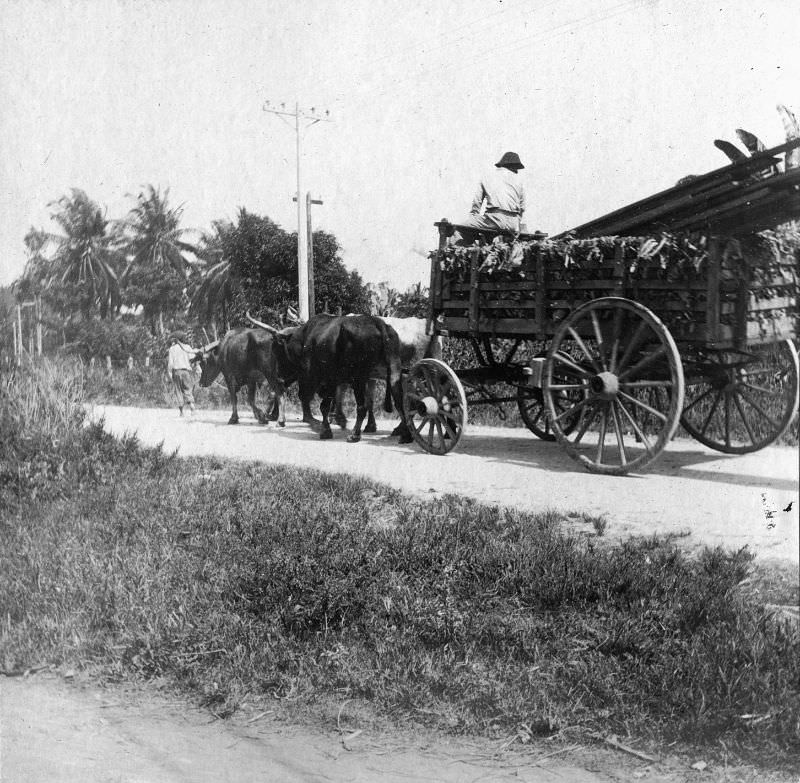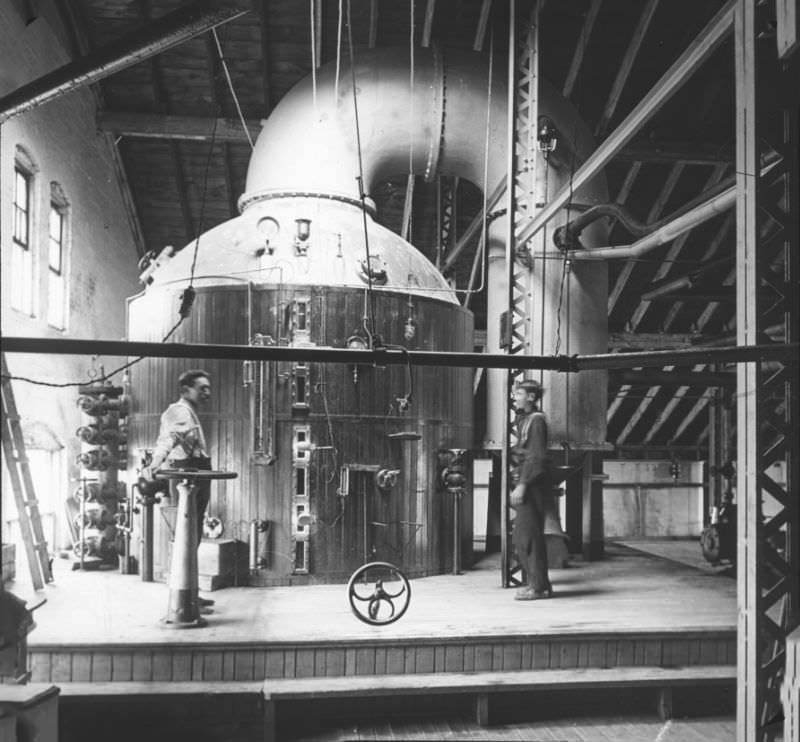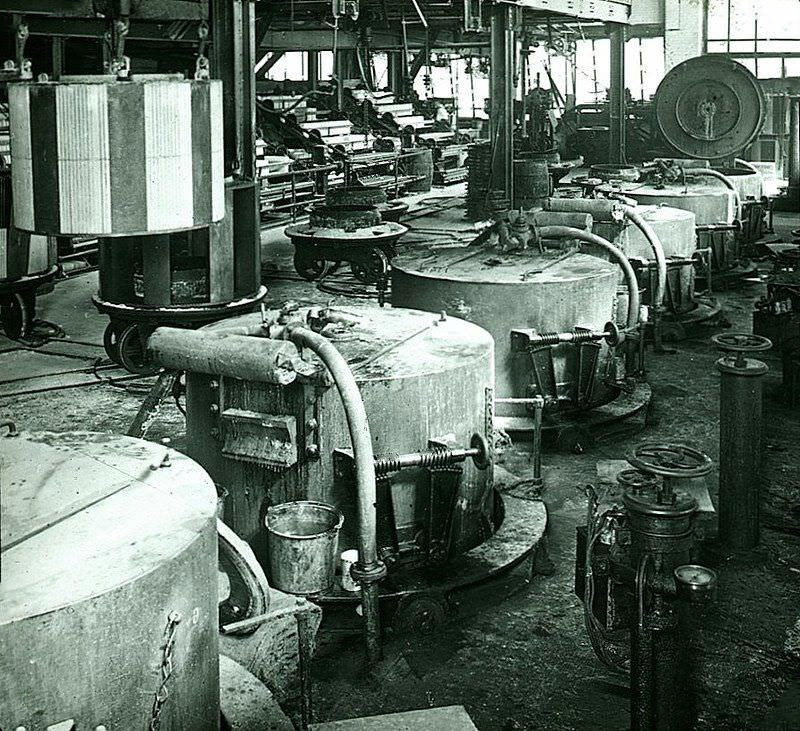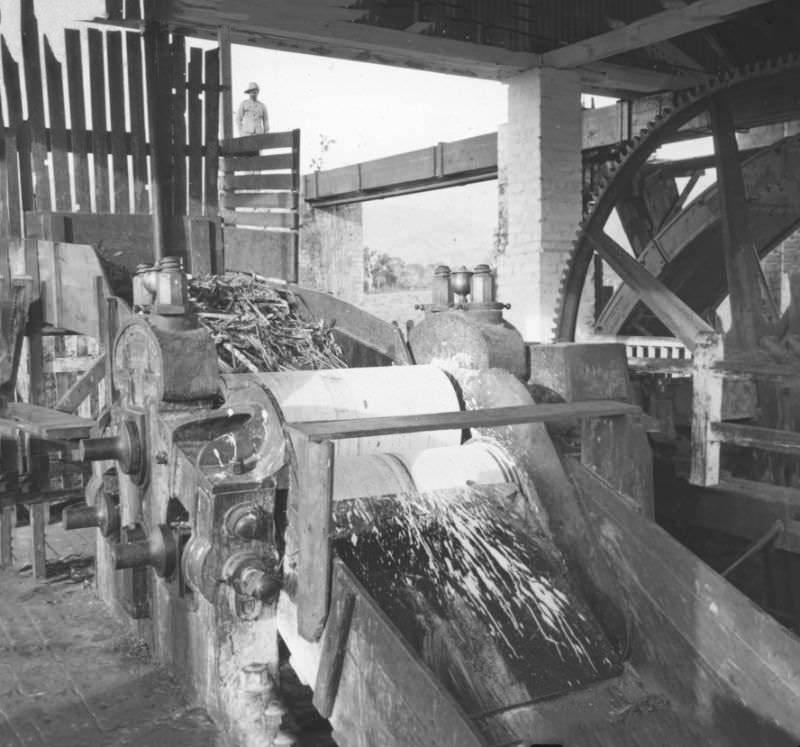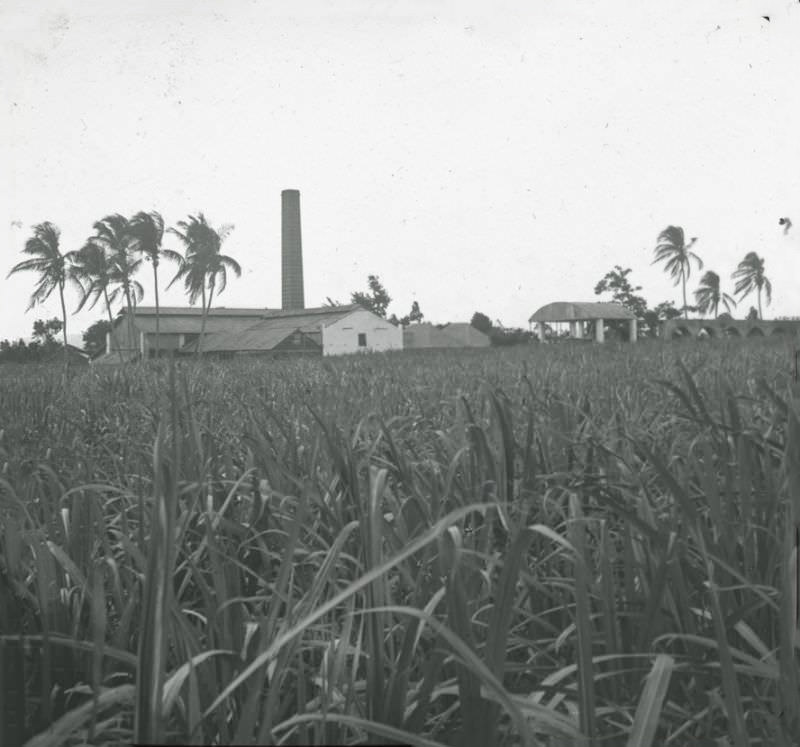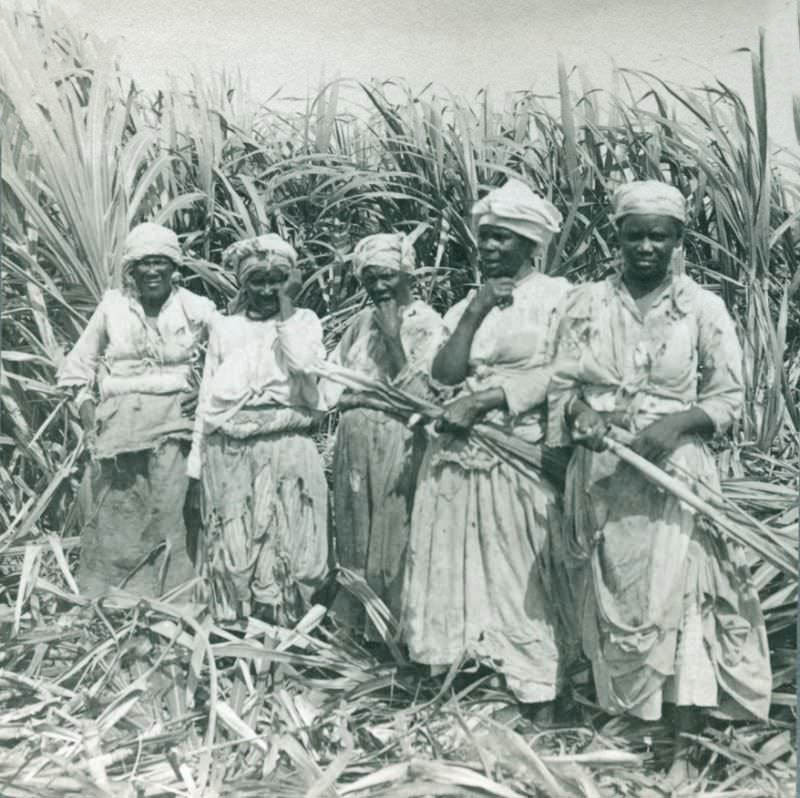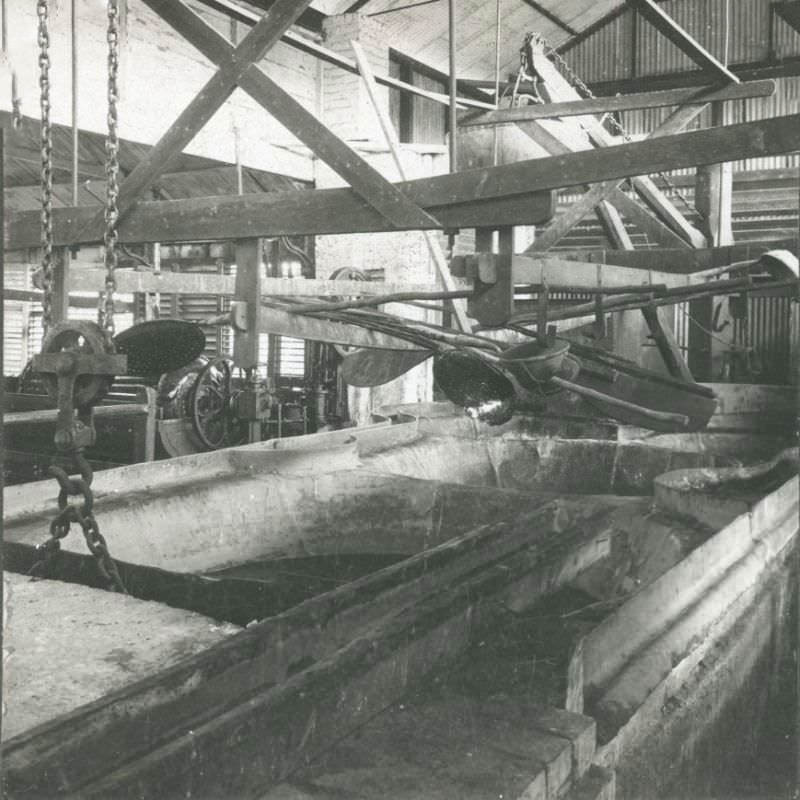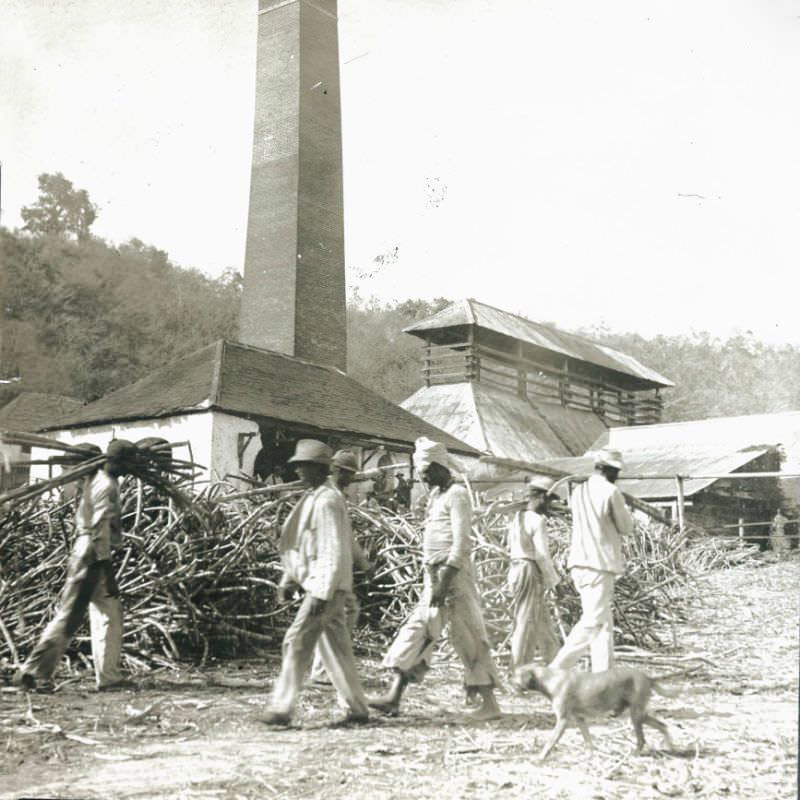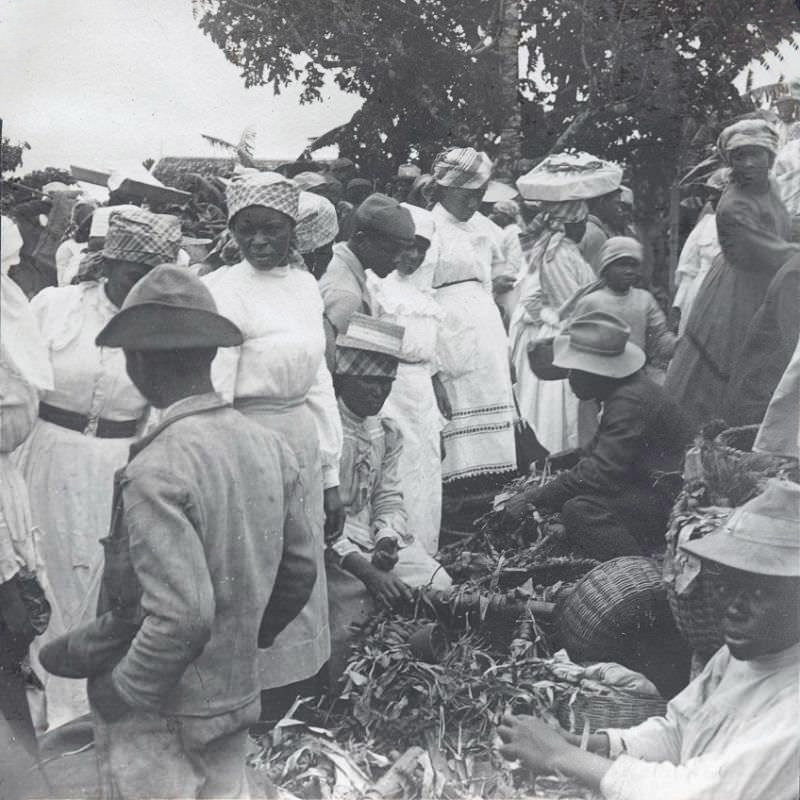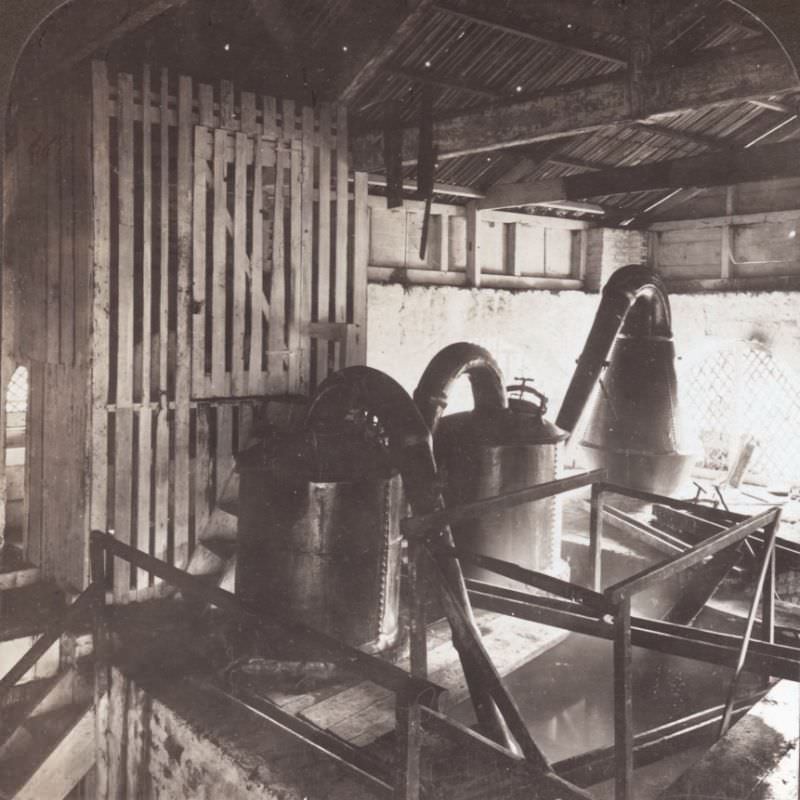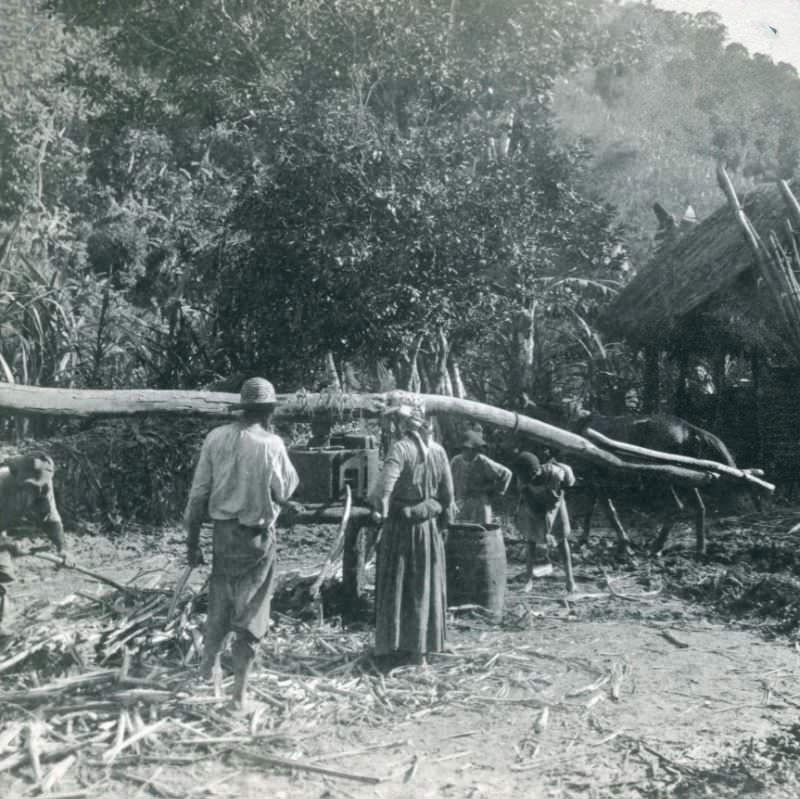Due to Jamaica’s tropical climate and the trans-Atlantic slave trade became the world’s largest sugar producer in the seventeenth century. In the eighteenth and early nineteenth centuries, Jamaica was the world’s largest exporter of sugar. American and European sugar imports were heavily dependent on British Colonial, and therefore Jamaican, sugar exports. In addition, the Napoleonic Wars led to an expansion of the Jamaican sugar trade. Due to the wartime ban on trade with America, the Jamaicans only suffered a drop in capital during the American revolution.
The British colony’s prosperity was short-lived, though, and by March 1815, Jamaica was at the height of its sugar industry. British dominance of the world sugar market lasted until the 1830s when slavery was abolished, and Cuba overtook its neighbor in sugar production.
These historical photos show sugar production in Jamaica from the late 19th and early 20th Centuries.


